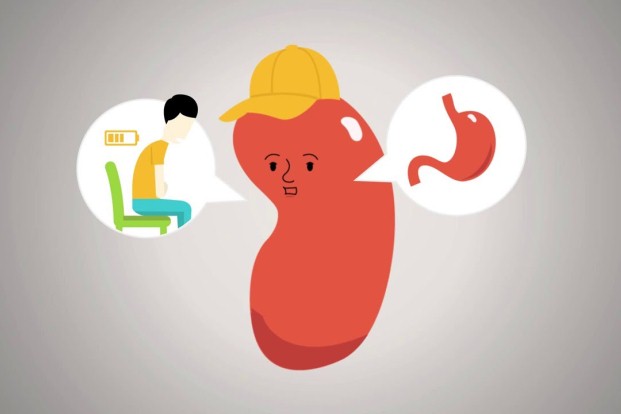PAIN IN YOUR STOMACH COULD BE A KIDNEY STONE !
Apr 19, 2022
Presentation of Renal Stone Disease ranges widely from asymptomatic to severe renal colic, meaning that the symptoms could be silent or evident in the form of pain or appearance of any abnormality. There may be other symptoms like hematuria ( the presence of blood in urine) ,nausea, vomiting and fever. Some patients may have vague abdominal discomfort. Some may present with urinary problems like increased frequency and dysuria (painful or difficult urination).
Symptoms can vary:
Sign and symptoms also depend on the age of the patients and other comorid conditions like diabetes. Classical pain of renal colic is on the flank and back which is waxing and waning type. There may be paraesthesia (an abnormal sensation, typically tingling or pricking) and tenderness between the lower rib and the spinal muscles posteriorly.

Diabetic patients at maximum risk:
Diabetic patients may not have classical presentation of pain. They may have fever with chill which is a feature of infection. Hematuria (the presence of blood in urine) is the predominant feature in infants and children. Some patients may present with lithuria (excretion of uric acid or urates in large amount in the urine). Patient may have colicky pain (form of pain that starts and stops abruptly due to muscular contractions of a hollow tube in the colon), which subsides in hours to days indicating passed out stone. If renal stone is causing long standing obstruction then there is hydronephrosis of kidney – swelling of a kidney due to a build-up of urine – which eventually causes destruction of functioning renal mass. It happens when urine cannot drain out from the kidney to the bladder from a blockage or obstruction. Hydronephrosis can occur in one or both kidneys. The main function of the urinary tract is to remove wastes and fluid from the body
Bilateral Kidney Failure – A complication caused by Renal Stones:
Sometimes bilateral renal stone disease may cause obstruction resulting in bilateral hydronephrosis and loss of renal function. Such patient may have decrease in urinary output and subsequent chronic renal failure. Some patients may present with anuria (failure of the kidneys to produce urine). So decrease urine output is an emergency condition seeking urgent medical care with the involving emergency team, nephrologist and urologist.
Sometimes longstanding renal stone disease may cause squamous cell carcinoma which is the most dreaded complication of renal stone. Renal Stone Disease in chronic kidney disease is another challenge because we have to save the functioning mass of the kidney as early as possible and our aim is making these patients stone free and prevent recurrence.Renal stone may present in pregnancy also which we need to treat very cautiously.Stone in an elderly and bed ridden patients is another challenge. We have to see risk benefit ratio in these patients. If you are experiencing any of the above symptoms, consult a urologist or a kidney specialist today!




